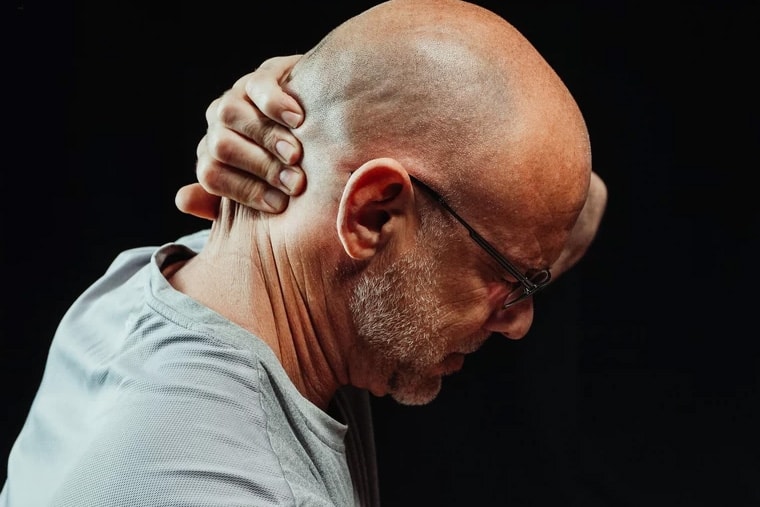Many people with migraine experience neck pain during an attack. Does this mean we need to treate the neck to deal with migraine?
In day-to-day language, including in the press, the word ‘migraine’ is often used synonymously with ‘headache’.
Case in point: This recent Newshub article:
“[Simon] O’Connor…caused a four-day migraine for his party with a Facebook post celebrating the dismantling of Roe v Wade.”
Mr O’Connor’s action presumably did not induce nausea, vomiting and sensitivity to light (all features of migraine) in the National Party, although perhaps the journalist’s choice of word was to highlight that this was not ‘just a headache’ for the Party leader and it lingered for days before resolution.
Perhaps the journalist also realised that for many people, migraine is not only a pain in the head but also a serious pain in the neck (as was Simon O’Connor in this context). Most people with migraine experience neck pain (77% from a review in 2022 and 87% of those with chronic migraine). In fact, neck pain during migraine is more common than nausea, although nausea is considered a defining feature of migraine. Does this mean we need to treat the neck to deal with the migraine?
For most people, it seems not. One study took a group of people with migraine and subjected them to a bevy of tests, assessing the range of movement in their necks, and the functioning of the neck joints and muscles. Three out of five had normal neck function. Even among those who had migraine and neck pain, more than half were assessed as having no anatomical issues in their necks. For these people, the neck pain was due to migraine, not to any underlying neck problem.
Another study specifically tested the trapezius muscle, the large muscle that runs from the neck to the shoulders and down the back, and is often implicated in stress-related headaches. This study did not find that tension in the trapezius was related to neck pain associated with migraine – pain in this muscle could be a symptom of migraine but not a cause.
Neck pain and muscle tension in the shoulders can also be part of the prodromal phase of migraine, the time when the brain is not functioning normally but before the onset of classic head pain symptoms. More commonly, neck pain and tension occur around the same time as the headache.
So, how can we know if pain in the neck before or during a migraine is part of the migraine attack or due to a neck issue? If the neck pain improves with migraine treatment (e.g. a triptan or non-steroidal anti-inflammatory drug), then it is very likely to be part of the migraine.
But if there is ongoing pain and restriction in the neck even outside of the migraine attack, then it may point to something more. For example, in older people, arthritis in the spine will often co-exist with migraine. Anyone with persisting neck pain should be assessed for an underlying neck problem that might be contributing to migraine attacks. But the chances are that pain in the neck during a migraine attack is actually due to the same disturbed pain pathways in the brain that cause pain in the head.
References
- Al-Khazali, H. M., Younis, S., Al-Sayegh, Z., Ashina, S., Ashina, M., & Schytz, H. W. (2022). Prevalence of neck pain in migraine: A systematic review and meta-analysis. Cephalalgia, 42(7), 663–673. https://doi.org/10.1177/03331024211068073
- Calhoun, A. H., Ford, S., Millen, C., Finkel, A. G., Truong, Y., & Nie, Y. (2010). The Prevalence of Neck Pain in Migraine. Headache: The Journal of Head and Face Pain, 50(8), 1273–1277. https://doi.org/10.1111/J.1526-4610.2009.01608.X
- Lampl, C., Rudolph, M., Deligianni, C. I., & Mitsikostas, D. D. (2015). Neck pain in episodic migraine: premonitory symptom or part of the attack? Journal of Headache and Pain, 16(1), 1–5. https://www.ncbi.nlm.nih.gov/p.
- Liang, Z., Thomas, L., Jull, G., Minto, J., Zareie, H., & Treleaven, J. (2021). Neck pain associated with migraine does not necessarily reflect cervical musculoskeletal dysfunction. Headache: The Journal of Head and Face Pain, 61(6), 882–894. https://doi.org/10.1111/HEAD.14136
- Luedtke, K., Mehnert, J., & May, A. (2018). Altered muscle activity during rest and during mental or physical activity is not a trait symptom of migraine – a neck muscle EMG study. Journal of Headache and Pain, 19(1), 1–7. https://doi.org/10.1186/S10194-018-0851-5/FIGURES/2


